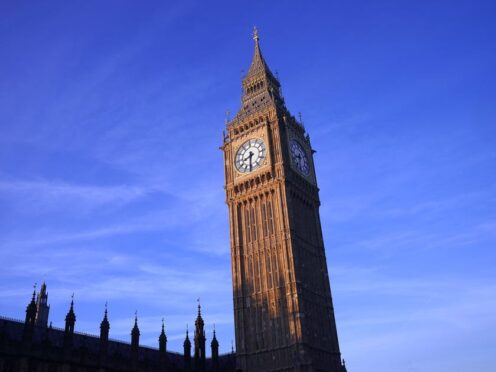Younger retail investors are predicting that a change of government will prompt a surge in UK markets and boost their stock market holdings.
A survey of 1,000 UK-based retail investors found that about two-thirds of respondents aged 18 to 44 think a change in Downing Street will push up the value of British-listed stocks.
The figure fell to 44% of total retail investors when including all age ranges, versus 30% who said the opposite, according to the research by trading platform eToro.
While 68% of people who said they were Labour voters said they thought a new Government would be a boon to UK shares, about a quarter of Tory voters agreed.
Dan Moczulski, UK managing director at eToro, said: “When Labour won power in 1997 the FTSE 100 rallied by 35% over the next 12 months.
“While we’re unlikely to see anything quite so dramatic this time around, the FTSE 100 has already returned 7% so far this year, indicating that markets are comfortable with the expected outcome of this election.
“With inflation, UK stocks and sentiment beginning to turn a corner, the mood music is clearly right for investors heading into this election.”
Sir Keir Starmer’s Labour Party is the favourite to win the General Election on July 4.
A recent poll by Savanta, carried out online from June 21-24 among 2,318 UK adults, gives Labour a lead of 21 percentage points.
The figures are Labour 42%, Conservative 21%, Reform 14%, Liberal Democrats 10%, Green 5%, SNP 3%, Plaid Cymru 1% and other parties 5%.

It comes as UK markets have enjoyed a surge in value this year, with the FTSE 100 gaining nearly 7% since the start of January.
Meanwhile, headline inflation has already fallen below the Bank of England’s target of 2%, with the central bank expected to cut interest rates in the coming months.
Economists have also predicted further improvements in key economic indicators such as gross domestic product (GDP) growth over the next year.
Despite slowing down in April, GDP swung back into growth in the first quarter of 2024 after a brief recession at the end of last year.
Separately, Susannah Streeter, head of money and markets at Hargreaves Lansdown, said the impact on financial markets of the General Election is likely to be “minimal” because of the strong lead the Labour Party already has in the polls.
“Even a Labour supermajority is unlikely to dramatically unsettle investors. It would enable the new government to get on with their agenda, which has largely been digested by markets.
“Anything other than Labour dominance is more likely to be unnerving given expectations. It could weaken the position of Sir Keir Starmer and his ministers and hamper their ability to drive change.”
